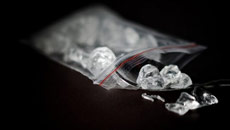Forget drugs and neurogenesis, the self-repairing mechanism of the adult brain can help preserve brain function and can be targeted as a potential therapeutic intervention in neurodegenerative diseases such as Alzheimer's, Prion or Parkinson's, says a study.
Researchers detected increased neurogenesis in the dentate gyrus that partially counteracts neuronal loss.
Dentate gyrus is a simple cortical region that is part of the larger functional brain system controlling learning and memory, the hippocampus.
"This study highlights the latent potential of the brain to orchestrate a self-repairing response," said Diego Gomez-Nicola from the University of Southampton in Britain.
Using a model of prion disease from mice, the researchers identified the time-course of the generation of these newborn neurons and how they integrate into the brain circuitry.
While this self-repairing mechanism is effective in maintaining some neuronal functions at early and mid-stages of the disease, it fails in more advanced phases.
This highlights a temporal window for potential therapeutic intervention, in order to preserve the beneficial effects of enhanced neurogenesis.
The study was published in the journal Brain.





